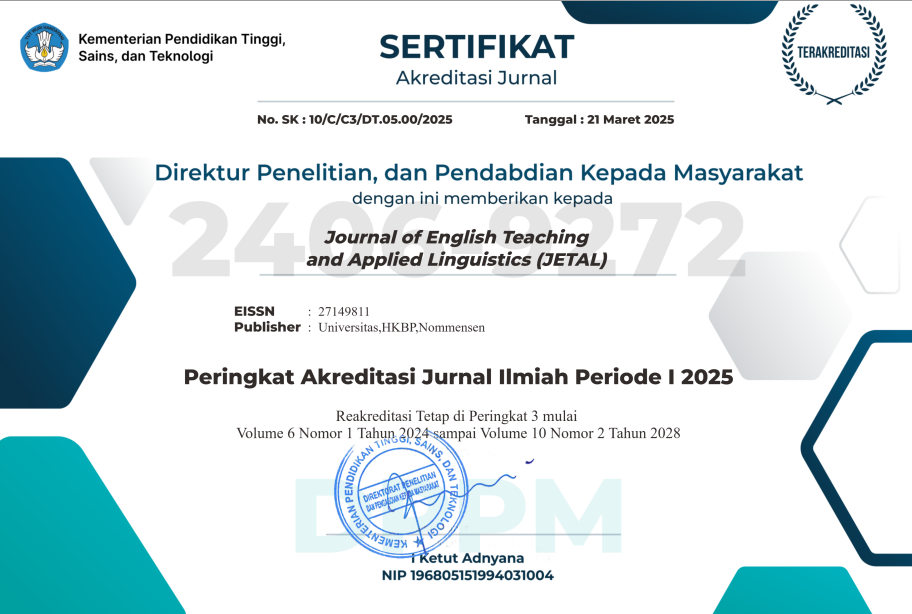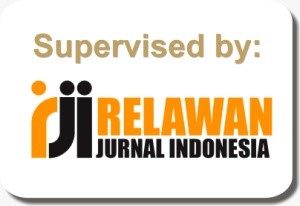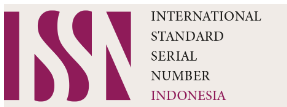Politeness Strategies in the 2020 Biden - Trump Preseidential Debate: A Pragmatic Analysis
Abstract
This research explores the use of politeness strategies in the 2020 U.S. Presidential debate between Joe Biden and Donald Trump. The study aims to analyze how each candidate utilized these strategies to navigate the debate and influence public perception. By applying qualitative analysis, the research examines debate transcripts through the lens of Brown and Levinson's politeness theory, while also considering non-verbal cues using McNeill's coding scheme. The results show that Trump frequently employed direct and often confrontational bald-on-record strategies, whereas Biden leaned towards positive politeness, seeking to build a sense of connection with the audience. These findings provide valuable insights into the role of politeness strategies in political communication, highlighting their impact on the dynamics of public discourse.
References
Brown, L., & Prieto, P. (2017). (Im)politeness: Prosody and Gesture. In The Palgrave Handbook of Linguistic (Im)politeness. https://doi.org/10.1057/978-1-137-37508-7_14
Brown, P., & Levinson, S. C. (1987). Politeness: Some universals in language usage. In Politeness: Some universals in language usage. Cambridge University Press.
Creswell, J., & Guetterman, T. (2018). Educational Research: Planning, Conducting, and Evaluating Quantitative and Qualitative Research, 6th Edition.
Fauziati, E. (2014). Linguistic impoliteness: A brief literature review. Universitas Muhammadiyah Surakarta.
Putri, P. D. A. (2023). Politeness Strategies Used in the First Trump-Clinton Presidential Debate. International Journal of Language and Literature. https://api.semanticscholar.org/CorpusID:259892736
Rizka, B., Lismalinda, Adnan, Moriyanti, & Faisal. (2020). Jokowi vs Prabowo: the politeness and its violation in political communication of indonesian president candidates. Humanities and Social Sciences, 8, 31–38. https://api.semanticscholar.org/CorpusID:218958671
Rosari, M. (2016). Politeness Strategies Applied by the Characters of The Great Debaters Movie. Language and Language Teaching Journal, 19(01), 19–33. https://doi.org/10.24071/llt.2016.190103
Trotta, D., & Guarasci, R. (2021). How are gestures used by politicians? A multimodal co-gesture analysis. Italian Journal of Computational Linguistics, 7(1-2), 45–66. https://doi.org/10.4000/ijcol.827
Wasike, B. (2019). Gender, Nonverbal Communication, and Televised Debates: A Case Study Analysis of Clinton and Trump’s Nonverbal Language During the 2016 Town Hall Debate. International Journal of Communication, 13, 251–276.
Yule, G. (1996). Pragmatics. Oxford University Press

This work is licensed under a Creative Commons Attribution-ShareAlike 4.0 International License.
Authors retain copyright and grant the journal right of first publication with the work simultaneously licensed under a Creative Commons Attribution-ShareAlike 4.0 International License (CC BY-SA 4.0) that allows others to share the work with an acknowledgment of the work's authorship and initial publication in this journal.
Authors are able to enter into separate, additional contractual arrangements for the non-exclusive distribution of the journal's published version of the work (e.g., post it to an institutional repository or publish it in a book), with an acknowledgment of its initial publication in this journal.
Authors are permitted and encouraged to post their work online (e.g., in institutional repositories or on their website) prior to and during the submission process, as it can lead to productive exchanges, as well as earlier and greater citation of published work (See The Effect of Open Access).






